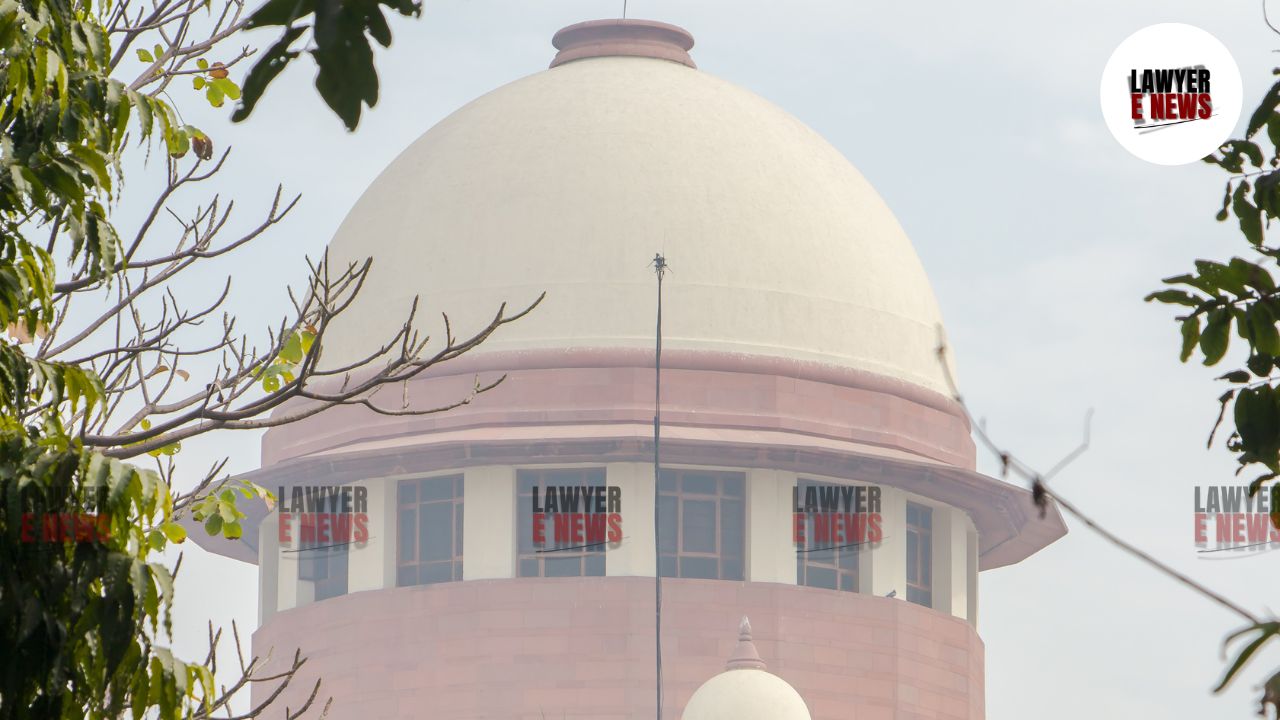-
by Admin
15 February 2026 5:35 AM



Supreme Court of India exercised its extraordinary power under Article 142 of the Constitution to quash criminal proceedings against the appellant, Iqbal Husain Anwar Husain Ansari. The appellant was accused of serious charges, including rape and unnatural offences, based on an FIR filed by his wife, who later retracted her allegations, stating they were made under family pressure. The Supreme Court's decision to quash the FIR aimed to prevent further family disruption and unnecessary harassment of the appellant.
The case originated with an FIR filed on June 27, 2023, by the appellant's wife at the Gomtipur Police Station in Ahmedabad, Gujarat. The FIR alleged various offenses under the Indian Penal Code.
The appellant was arrested on July 3, 2023, and remained in custody until the Supreme Court granted him interim bail on June 27, 2024. However, during the trial, the complainant withdrew her allegations, stating that they were made under the influence of her family. She testified in court that she had been pressured to file the complaint and no longer wished to pursue the case, highlighting a desire to restore harmony in her family.
Legal Issues at Hand
The core legal issue in this case was whether the FIR and subsequent criminal proceedings should continue despite the complainant’s retraction. The complainant's initial statements under Sections 161 and 164 of the Criminal Procedure Code (CrPC) supported the allegations in the FIR. However, her later retraction and statement in court presented a unique situation where the complainant expressed her unwillingness to continue with the prosecution.
Key legal provisions and principles considered by the Court included:
Section 376(2)(n) and Section 377 of the IPC, which address grave offenses such as rape and unnatural offenses, raising questions on whether these charges could be quashed in light of the complainant's retraction.
Article 142 of the Constitution of India, which empowers the Supreme Court to pass orders to secure "complete justice" in a case, allowing it to quash proceedings where circumstances demand an equitable resolution.
Court's Observations on the Retraction and Family Harmony
Justice Dipankar Datta and Justice Prashant Kumar Mishra, comprising the bench, emphasized the importance of the complainant’s retraction and her expressed desire to restore family peace. The Court interacted directly with the complainant, who confirmed that her complaint was filed under familial influence and that she did not wish to pursue the case against her husband.
The Court noted:
"Considering the complainant's retraction and her desire to maintain family harmony, we find no reason to continue with the prosecution as it would serve no purpose other than to cause unnecessary disruption in family life."
This acknowledgment of the complainant's agency and her current stance underscored the Court's approach in balancing the legal process with personal and familial considerations.
Exercise of Supreme Court's Power Under Article 142
In quashing the FIR and proceedings, the Court invoked its extraordinary power under Article 142 of the Constitution, which allows it to ensure "complete justice." The Court observed that continuing the prosecution in light of the complainant's retraction would only lead to unwarranted harassment of the appellant without serving any meaningful purpose.
The Court stated:
"We exercise our powers under Article 142 to quash the FIR and related proceedings. The interim bail granted to the appellant is confirmed, and he is discharged from his bail bond obligations."
This decision reflects the Court's commitment to applying equitable principles in situations where strict legal proceedings may hinder family reconciliation and individual liberty.
The Supreme Court’s judgment underscores the importance of considering the complainant's current intentions and the broader impact on family harmony in cases involving retractions of serious allegations. By quashing the FIR and proceedings under Article 142, the Court prioritized the complainant's autonomy and the need to prevent unnecessary legal harassment. The appellant was thus set free, with his bail bond discharged.
Date of Decision: October 15, 2024
Iqbal Husain Anwar Husain Ansari v. The State of Gujarat
